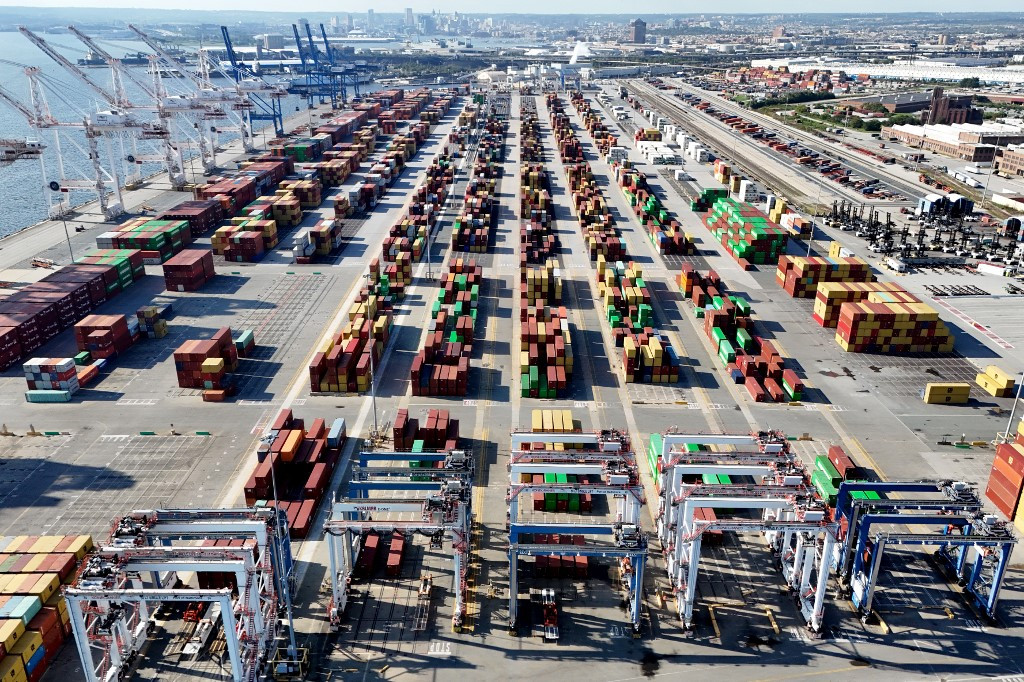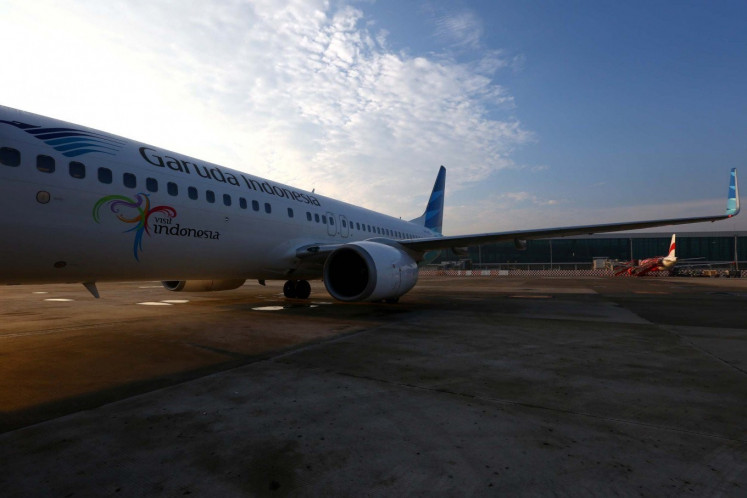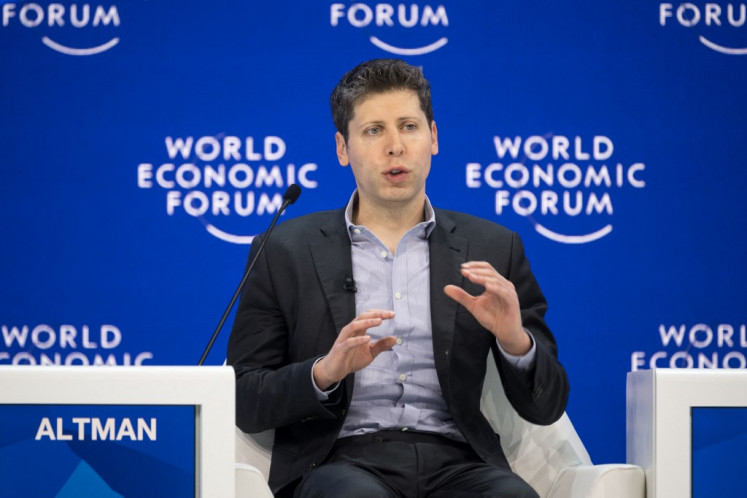Popular Reads
Top Results
Can't find what you're looking for?
View all search resultsPopular Reads
Top Results
Can't find what you're looking for?
View all search resultsUS dockworkers return to ports after three-day strike
The staggered reopening covers US ports from Maine to Texas following Thursday night's preliminary agreement between the International Longshoremen's Association (ILA) and the United States Maritime Alliance (USMX).
Change text size
Gift Premium Articles
to Anyone
 An aerial view of the Dundalk Marine Terminal in Baltimore, Maryland, the United States on Oct. 3, 2024. Dockworkers with the International Longshoremen's Association (ILA) at 36 major ports on the East Coast and Gulf region walked off the job earlier this week, kicking off the first nationwide strike by the ILA since 1977, after the union failed to reach a contract agreement with port ownership. (-/Anna Moneymaker/Getty Images via AFP)
An aerial view of the Dundalk Marine Terminal in Baltimore, Maryland, the United States on Oct. 3, 2024. Dockworkers with the International Longshoremen's Association (ILA) at 36 major ports on the East Coast and Gulf region walked off the job earlier this week, kicking off the first nationwide strike by the ILA since 1977, after the union failed to reach a contract agreement with port ownership. (-/Anna Moneymaker/Getty Images via AFP)
T
housands of dockworkers returned to work on Friday, the day after a longshoremen's union reached a preliminary deal with shippers, ending a three-day strike weeks before the United States presidential election.
At the Port of Mobile in the southern state of Alabama, on the Gulf Coast, terminal operator APM resumed operations at 7 a.m. local time, the company said online.
The Port of Virginia in Norfolk on the East Coast said it will reopen Saturday, planning "extended weekend gate hours" for terminal operators.
"We ask that our motor carrier partners be patient," the port said.
At the giant Port of New York and New Jersey, the second-largest container port in the United States after Los Angeles and Long Beach, the Port Liberty terminal in Bayonne plans to resume work on Monday morning.
The staggered reopening covers US ports from Maine to Texas following Thursday night's preliminary agreement between the International Longshoremen's Association (ILA) and the United States Maritime Alliance (USMX). Workers had walked out Tuesday morning with the expiration of their contract.
The parties "reached a tentative agreement on wages and have agreed to extend the Master Contract until Jan. 15, 2025," said a joint statement.
"Effective immediately, all current job actions will cease and all work covered by the Master Contract will resume."
The strike was the first involving these ports since 1977.
Talks between the two sides had been dormant for months. But negotiations resumed Monday as the contract's expiration deadline approached.
In recent days, Acting Labor Secretary Julie Su and other Biden administration officials urged the parties to hash out differences and called on USMX to boost its offer.
Wage hikes
The stoppage involved some 45,000 workers at 36 facilities.
The contract pertained only to 14 large ports, including New York/New Jersey, Philadelphia, Boston, Savannah, Miami and Houston. However, additional workers at ILA-represented facilities in the region joined the stoppage.
The talks centered on wages and ILA efforts to prevent job loss due to automation. ILA leaders argued that a big wage hike was merited after dockworkers kept the economy running during the pandemic, boosting shipper profits.
The tentative agreement pertains to wages and extends the contract to Jan. 15, 2025.
"The two sides have agreed to return to the bargaining table to negotiate all other outstanding issues," said the joint statement.
It did not offer terms of the deal, but The Wall Street Journal, citing sources close to the matter, said USMX had proposed a 62 percent salary increase over six years, allowing the deal to be reached.
US President Joe Biden had been under pressure to intervene in negotiations to keep ports open, but had demurred, citing respect for collective bargaining rights. He praised both sides for resolving the matter, citing the need to "ensure the availability of critical supplies for Hurricane Helene recovery and rebuilding," a White House statement said.
Outside the White House late Thursday, Biden said, "They've got the next 90 days, they are going to settle everything."
Analysts had cautioned that, with the November 5 presidential election nearing, a lengthy strike could have posed a major headwind to the US economy, leading to shortages of some items and lifting costs at a time when inflation has been moderating.
Shipping companies forced to reroute their vessels had planned to apply surcharges for each container: $1,000 each for German shipping company Hapag-Lloyd, and $800 to $1,500 for France's CMA CGM, according to German logistics platform Container xChange.
Oxford Economics said it doesn't plan to update its economic forecast in light of the quick resolution of the strike.
"The port strike ended fairly quickly, removing any significant downside risk to the economy this quarter," said the Oxford note.
"It will take a little time to work through any backlogs that developed during the strike, but any lost output that occurred during the strike will be made up through the remainder of this quarter, therefore no change to our forecast for Q4 GDP is needed."










